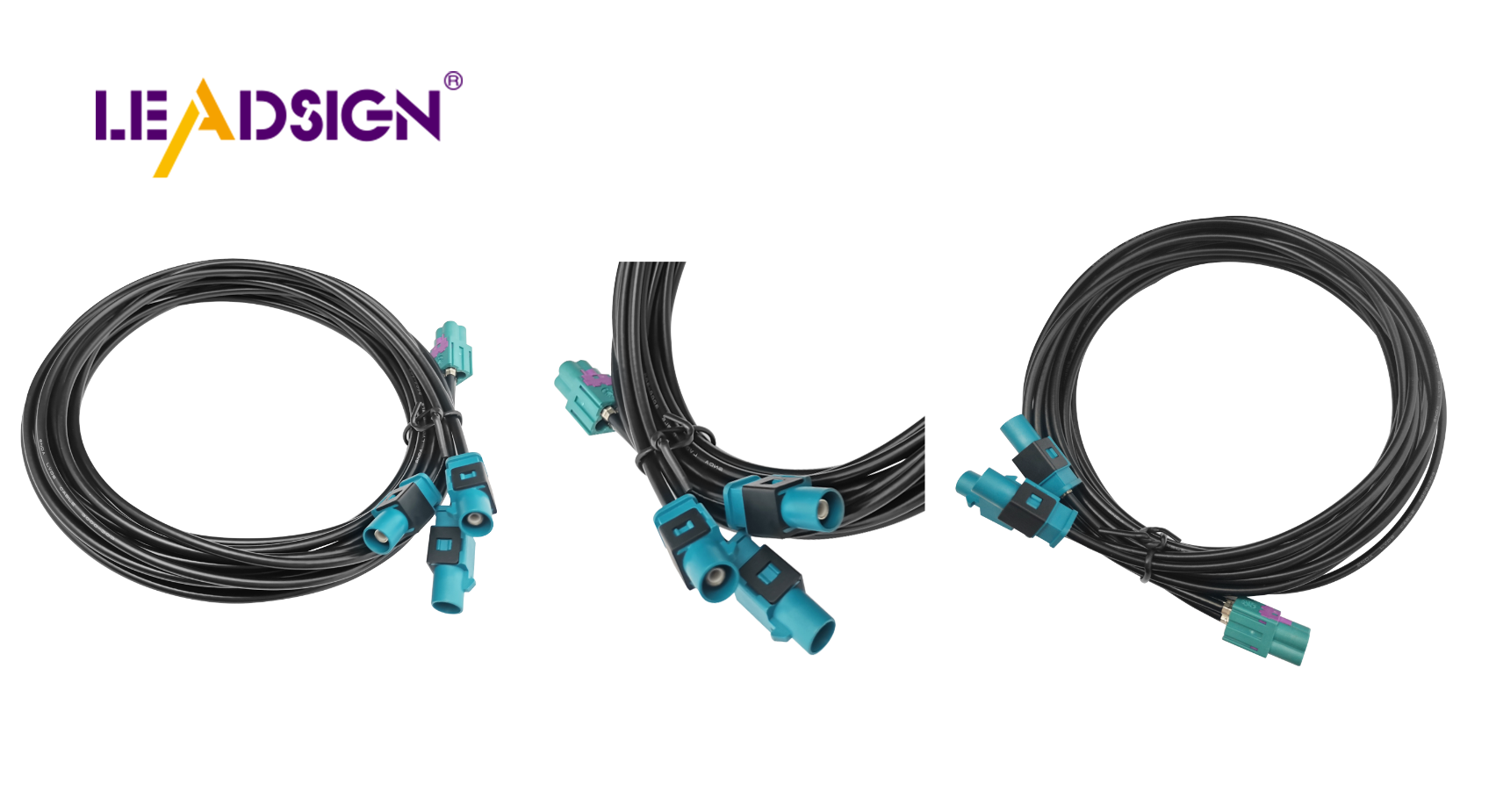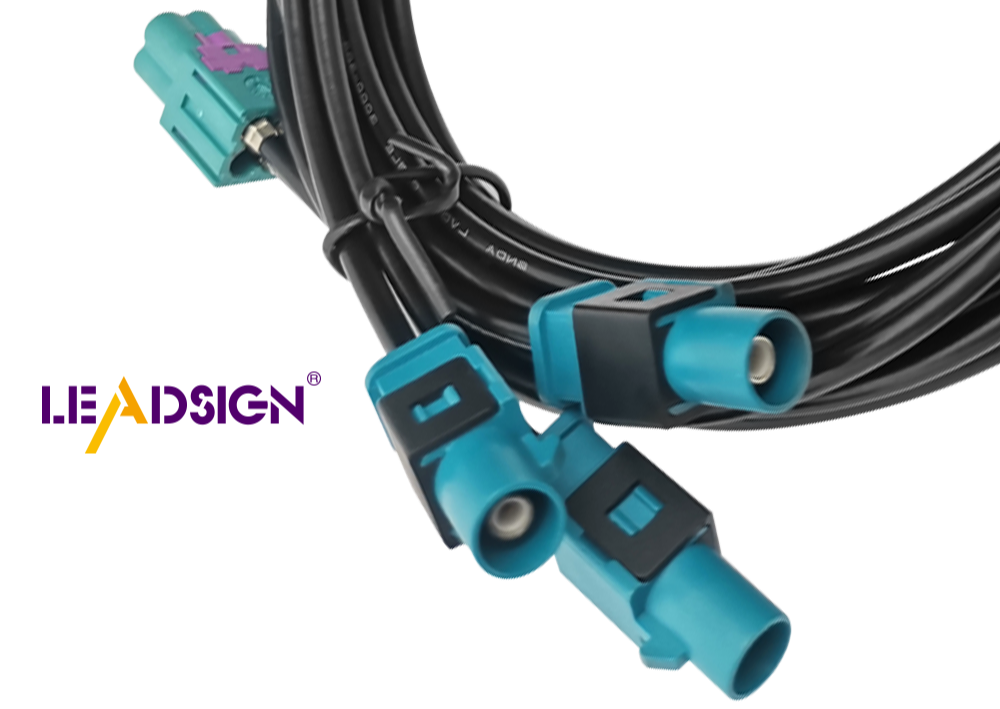How to Choose the Right Automotive Electrical Connectors Types

Selecting the appropriate automotive electrical connectors types is crucial for optimal vehicle performance. These connectors play a vital role in ensuring seamless communication and power distribution within the vehicle systems. By choosing the right types of connectors, you can enhance the reliability and efficiency of your car's electrical connections. Understanding the various automotive electrical connectors types can help prevent common issues and improve the overall safety and functionality of your vehicle.
Understanding Automotive Electrical Connectors Types

What are Automotive Electrical Connectors?
Definition and Purpose
Automotive electrical connectors are key parts of your car's wiring. They link circuits so power and signals move well. These connectors have different shapes and sizes for special uses. Using the right ones keeps your car's wires working well, stopping problems like shorts or losing power.
Importance in Vehicle Systems
In cars, electrical connectors are very important. They make sure all electronic parts, like the engine and radio, work right. Without good connectors, systems might not talk to each other well. This can cause problems or even be dangerous. So, picking the right automotive electrical connectors types is key for keeping your car safe and running well.
Common Automotive Electrical Connectors Types
Blade Connectors
Blade connectors are flat metal pieces that fit into slots. They're common in cars because they're easy to use and strong. They hold tight, which is great where there's shaking, like near engines.
Pin Connectors
Pin connectors have pins that go into sockets. They're used where many connections are needed, like in wire bundles. They connect lots of wires at once for good system communication.
Butt Connectors
Butt connectors join two wire ends together. They're handy when fixing or extending wires. Crimping them makes a strong link often used in car fixes.
Ring Connectors
Ring connectors have a ring end that fits over bolts or studs. You use them for grounding or battery links. Their design keeps them from coming loose due to shakes or movement.
Product Information: Bullet connectors have male and female parts that fit together tightly. They're used where you need to disconnect and reconnect often, like with car stereos.
Knowing these connector types helps you choose wisely when fixing your car's wiring systems to keep them strong and efficient.
Things to Think About When Picking Connectors
When picking automotive electrical connectors types, think about a few things. These help your car's electrical parts work well and last long.
Weather Conditions
Handles Heat and Cold
Connectors need to handle hot and cold weather. Cars face extreme temperatures, from freezing to very hot. Choose connectors that won't break in these conditions. Good ones stay strong, keeping your car running smoothly.
Stops Water and Dirt
Water and dirt can mess up connectors. Pick ones with good seals to keep them out. This is important for stable connections, especially in tough places. Strong connectors stop rust, which can cause problems.
Power Needs
Matches Power Levels
Know the power levels of automotive electrical connectors types. Match them with your car's needs. Wrong ones can overheat and break things. Right ones send power well and avoid issues.
Keeps Signals Clear
Clear signals are key for electronics to work right. Pick connectors that keep signals strong without interference. Good ones help parts talk clearly, making your car work better.
Physical Features
Strong and Lasting
Strength matters when choosing automotive electrical connectors types. Look for those made from tough stuff that handles stress well. Strong connectors last long, saving you time and money on fixes.
Easy to Put In
Easy setup is also important. Choose connectors that are simple to attach or remove. This saves time and cuts down mistakes during setup, ensuring solid connections.
By thinking about these points, you pick the best automotive electrical connectors types for your car's needs.
Uses in Car Systems
Knowing how automotive electrical connectors types work in car systems helps you choose better. These connectors make sure your car parts work well and last long.
Engine and Power Parts
Sensor Connectors
Sensors are important in engines. They check things like heat, pressure, and speed. Sensor connectors need to be strong for good data flow. Pick ones that handle heat and shaking to keep sensors working right.
Actuator Connectors
Actuators turn signals into movement. They move parts like the throttle. Choose strong connectors for actuators to handle power needs. This makes sure actuators work fast and well, helping the engine run better.
Lights and Signals
Headlight Connectors
Headlights help you see at night. Their connectors must stay steady for bright lights. Pick ones that fight water and rust since headlights face bad weather. This keeps your lights bright and reliable.
Indicator Connectors
Indicators show others where you're going. Good indicator connectors are key for safety. Choose ones that connect fast so indicators work right away. This stops accidents and helps on the road.
Fun and Communication
Audio Connectors
Audio systems make driving fun with music and info. Audio connectors should give clear sound without losing quality or having noise issues, making drives fun.
Navigation Connectors
Navigation helps you find places easily. Navigation system connectors must send data quickly even when signals are weak, ensuring accurate directions for smooth trips.
Case Study: Smiths Interconnect connectors change car testing. This shows how good connectors boost test success in cars, improving system performance.
Picking the right car electrical connectors is important for your car's safety and performance. Good connectors help power and systems talk to each other well. They make your car work better and stop problems before they start. Many people like these connectors because they're well-made and easy to use. By choosing great connectors, you make your car work better and feel safer when driving. Choose wisely to keep your car working smoothly and efficiently.
See Also
Significance of FAKRA Connectors in Auto Industry Use
Vital Role of Fakra Auto Connectors in Contemporary Cars
Essential Role of HSD Connectors in Auto Sector

